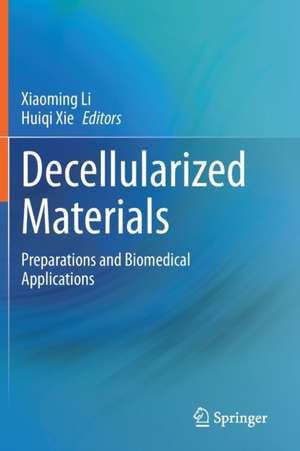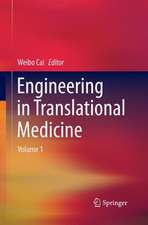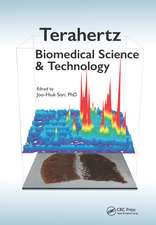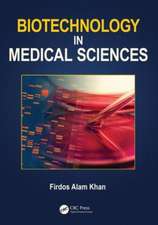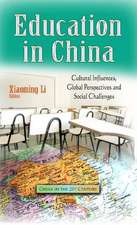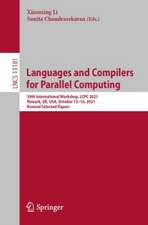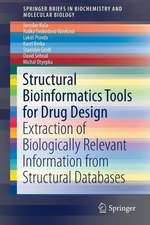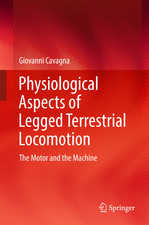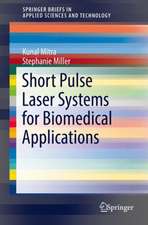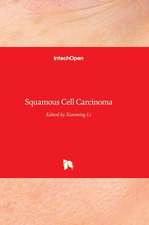Decellularized Materials: Preparations and Biomedical Applications
Editat de Xiaoming Li, Huiqi Xieen Limba Engleză Paperback – 29 apr 2022
| Toate formatele și edițiile | Preț | Express |
|---|---|---|
| Paperback (1) | 1109.31 lei 43-57 zile | |
| Springer Nature Singapore – 29 apr 2022 | 1109.31 lei 43-57 zile | |
| Hardback (1) | 1119.47 lei 22-36 zile | |
| Springer Nature Singapore – 28 apr 2021 | 1119.47 lei 22-36 zile |
Preț: 1109.31 lei
Preț vechi: 1167.69 lei
-5% Nou
Puncte Express: 1664
Preț estimativ în valută:
212.26€ • 222.22$ • 175.64£
212.26€ • 222.22$ • 175.64£
Carte tipărită la comandă
Livrare economică 07-21 aprilie
Preluare comenzi: 021 569.72.76
Specificații
ISBN-13: 9789813369641
ISBN-10: 9813369647
Ilustrații: X, 515 p. 158 illus., 135 illus. in color.
Dimensiuni: 155 x 235 mm
Greutate: 0.79 kg
Ediția:1st ed. 2021
Editura: Springer Nature Singapore
Colecția Springer
Locul publicării:Singapore, Singapore
ISBN-10: 9813369647
Ilustrații: X, 515 p. 158 illus., 135 illus. in color.
Dimensiuni: 155 x 235 mm
Greutate: 0.79 kg
Ediția:1st ed. 2021
Editura: Springer Nature Singapore
Colecția Springer
Locul publicării:Singapore, Singapore
Cuprins
Chapter 1. Overview of decellularized materials for tissue repair and organ replacement.- Chapter 2. The decellularation of tissues.- Chapter 3. Different forms of decellularized tissues and their characteristics, applications in tissue repair as well as performance optimization.- Chapter 4. Applications of decellularized materials for tissue repair.- Chapter 5. The decellularation of organs derived from animals.- Chapter 6. Recellularization of Decellularized Whole Organ Scaffolds: Elements, Progress and Challenges.- Chapter 7. The applications of the recellularization organs in organ replacement at the stage of animal research.- Chapter 8. The challenges and development directions of decellularized materials.
Notă biografică
Dr. Xiaoming Li is a professor at the School of Biological Science and Medical Engineering in Beihang University. He got his PhD from Tsinghua University in 2006, and then went to University of Twente as a researcher. From 2007 to 2009, he worked in Hokkaido University as a JSPS postdoctoral fellow. Since 2009, he has been a faculty member in Beihang University. He has been an invited lead guest editor for nine special issues published in SCI journals. Further, as the first author or corresponding author, he has published more than 80 SCI articles in the fields of biomaterials, tissue engineering, and regenerative medicine, which have been cited more than 3,000 times. He was awarded by the Beijing Nova Program, the Program for New Century Excellent Talents in University of China, and Fok Ying Tung Education Foundation.
Dr. Huiqi Xie is a professor of State Key Laboratory of Biotherapy in West China Hospital of Sichuan University. She received her PhD in clinical medicine in 2001 from Sichuan University. Her main research focus is decellularized materials, stem cells and tissue regeneration. She published more than 60 peer-reviewed papers and obtained more than 30 international or national patents for invention, four of which has been issued national registration certificate of medical devices. She is currently the chief scientist of the National Key R&D Program of China, and was awarded by the Program for New Century Excellent Talents in University of China and Fok Ying Tung Education Foundation.
Textul de pe ultima copertă
This book will consist of 8 chapters, in which important issues regarding decellularized materials (DMs) will be discussed. This book will provide special knowledge of materials for the persons with biomedical background, and special biomedical knowledge for the persons with the background of materials, which will hopefully become a valuable informative read for the researchers and students of biomedical engineering major.
Caracteristici
Thoroughly examines the applications of decellularized tissues and decellularized organs
Maximizes reader insights into the challenges and development directions of decellularized materials
With ample color figures
Maximizes reader insights into the challenges and development directions of decellularized materials
With ample color figures
